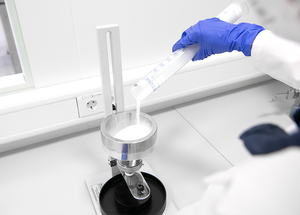Excipient-based strategies to harness complex therapeutics
The article discusses the challenges associated with small molecule drugs in pharmaceutical formulations, particularly focusing on their poor water solubility. It highlights that a significant percentage of marketed drugs and new chemical entities suffer from this issue, impacting their bioavailability and therapeutic efficacy.
To address these challenges, manufacturers are increasingly turning to functional excipients, which play a crucial role in enhancing drug delivery and improving product differentiation. Excipients are categorized into solubility enhancers, release modifiers, suspending agents, and viscosity modifiers, each serving specific functions to optimize drug formulations. Despite the conservative nature of the pharmaceutical industry, there is growing interest in novel excipients to tackle the complexities of pipeline APIs. Regulatory initiatives like the FDA's PRIME program aim to facilitate the introduction of innovative excipients to the market.
The article emphasizes the importance of selecting the right excipient early in the drug development process, considering factors such as safety, scalability, and patient preferences. It also underscores the significance of excipient compatibility, co-formulation, and commercial considerations in maximizing the efficacy and marketability of pharmaceutical products.
Overall, excipients play a vital role in overcoming formulation challenges and improving the effectiveness of drug treatments in addressing patient needs.

Comments
No comments posted yet.
















